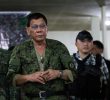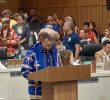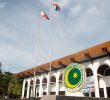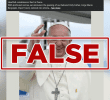TAGUM CITY — A New York-based human rights group said that President Benigno Aquino III has failed to deliver justice to human rights victims and has done nothing to achieve his goal to improve the human rights situation in the country.
The Human Rights Watch released a 659-page report titled “World Report 2016” on Wednesday highlighting the Aquino administration’s slow response to the spate of killings of journalists, activists, indigenous leaders, among others.
“Since his election, President Aquino held out the promise of a rights-respecting Philippines for which he has sadly been unable to deliver. While the number of serious violations has declined during Aquino’s administration, ongoing killings of prominent activists and the lack of successful prosecutions mean there’s nothing to prevent an upsurge of abuses in the future,” said Phelim Kine, deputy Asia director.
State-sponsored killings vs. indigenous peoples
HRW noted that under Aquino’s regime, more than a dozen of tribal leaders and community members have been killed within the first eight months of 2015. The systematic killings against the indigenous peoples, according to local rights groups, were said to be perpetrated by the government’s security forces and paramilitary groups.
The killings against indigenous peoples have been attributed to the increasing military operations in Mindanao, according to the United Nations Refugee Agency (UNHCR). The agency said that military deployment in areas heavily populated by the indigenous peoples have resulted to the displacement of 243,000 since January.
In Mindanao, indigenous peoples, especially children, have experienced different forms of rights abuses such as threat, intimidation, harassments, displacements, vilifications, among others. Human rights group Karapatan attributed the spate of killings to the government’s counter-insurgency program “Oplan Bayanihan.”
For instance, on August 26 last year, at least 17 local residents of White Kulaman, a tribal village in Bukidnon were arrested by the government troops after the latter accused them of being communist rebels. On September 1, paramilitary group Alamara killed three tribal leaders in Lianga town, in Surigao del Sur province. It was the same group responsible for the death of nine indigenous peoples in Cabanglasan town.
In Davao del Norte, military troops deployed in the hinterlands of Talaingod have caused massive displacements of the tribal communities and disruption of classes of Salugpungan Ta’tanu Igkanugon Learning Center Inc., a NGO-initiated tribal school.
Just recently, Alibando Tingkas, 15, a Grade 3 Lumad pupil of the Salugpungan Ta’tanu Igkanugon Learning Center Inc. was reportedly killed by the paramilitary group Alamara. Human rights group and child rights advocate groups have condemned the killing and scored Pres. Aquino’s counter-insurgency policy for the unrelenting attacks against the indigenous peoples.
“Beastly as they are, the AFP and paramilitary either kill our children or use them against their own people. And (Pres.) Aquino allows this to happen,” Karapatan’s Cristina Palabay said. She added that “aside from Tingkas, there are 28 other children victims of extrajudicial killings under the Aquino administration.”
“The children are defenseless and most vulnerable. Using them in counter-insurgency programs or including them among the targets do not only destroy the children’s well-being, but also their future and their tribes’ future. Hands off the children!” Palabay said.
Media killings unresolved
HRW documented nine cases of media killings in 2015. Out of the nine reported killings, three of them were killed in a span of 10 days in August. In Tagum City, the case of Rogelio “Tata” Butalid and Gregorio “Loloy” Ybañez, remain unresolved as the assailants are still at-large.
The group noted that “most victims of media killings in the Philippines are radio broadcasters; many are linked to politics since many radio stations in the Philippines are owned by local politicians or interest groups who hire broadcasters to produce content sympathetic to their employers.”
Child labor escalates
HRW has also documented human rights abuses that involve children. In its September HRW report, the group claims that across the country there were children working in “small-scale gold mining, exposed to extremely hazardous work conditions, working deep underground, diving underwater to dig for gold, and processing ore with toxic mercury.”
HRW’s Kine blamed the government’s lack of political will to institute major reforms to improve the human rights in the country.
“While Aquino’s presidency has had a mixed record on rights issues, ultimately he has failed to make the institutional reforms to ensure a lasting positive human rights legacy,” Kine said. “The Philippines’ next president must be prepared to tackle deep-seated impunity for abuses by state security forces and the corrupt and politicized criminal justice system.” (davaotoday.com)









